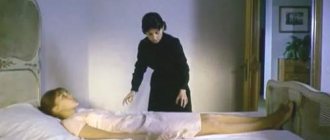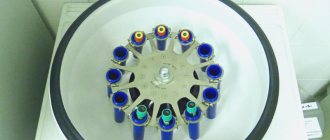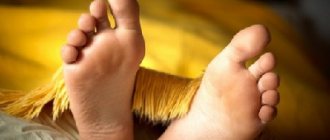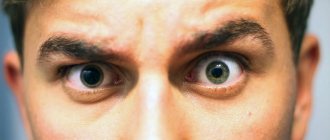Causes
A common cause of the syndrome is chronic stress caused by severe mental shock. However, scientists cannot say that the cause is 100% related to stress. Pathology began to be actively studied only in the 21st century. Therefore, there is very little clinical data on exploding head syndrome.
According to the observations of somnologists, pathology most often develops in women over 20 years of age and preschool children. Also, people with diseases of the nervous system, mental disorders and drug addiction are at risk.
Suspected causes of exploding head syndrome include:
- Anxiety.
- Alcohol addiction.
- Taking or abruptly stopping antidepressants, antipsychotics.
- Sleep disorders.
- Epilepsy.
- Middle ear dysfunction or injury.
- Sleep deprivation.
Note that these reasons only indirectly indicate the presence of the syndrome. What exactly is associated with the disease can be found out only after a thorough diagnosis prescribed by the doctor.
What could be causing the disorder?
As already mentioned, the nature of the syndrome has not yet been studied, so only viable theoretical calculations can be used. These include:
- micro-convulsions occurring in the brain, affecting its temporal lobes;
- severe pathology of the structure of the middle ear;
- stress or anxiety;
- post-traumatic effect after hearing damage;
- refusal to use certain types of antidepressants or drugs belonging to the benzodiazepine group;
- a peculiar manifestation of chronic fatigue;
- various types of night rest disturbances;
- pathology of the nervous system;
- use of hallucinogens, drugs and excessive drinking;
- various types of psychological disorders;
- chronic pathology of internal organs.
Statistics show that the weaker sex suffers more often from this disorder, while opponents do not agree with the data presented, arguing that women are more emotional and more often than men consult doctors.
Symptoms
Noise in the head when falling asleep indicates exploding head syndrome. It is as if a person feels that someone is shooting from a cannon inside his head. In this case, there is usually no headache during an attack.
Extraneous sounds inside the head can be accompanied by sleep paralysis, when a person is unable to move or say anything for some time.
In addition, you may experience:
- Panic attacks. A person experiences severe anxiety, which is accompanied by dizziness, rapid heartbeat, and weakness.
- Hallucinations. Noise in the head can give rise to hallucinations in the form of flashes. They are usually observed when falling asleep.
- Twitching of arms or legs. This is how the body reacts to a sudden noise in the head.
Instead of shots and explosions, a person can hear ringing bells, loud knocks, claps, etc. It is believed that the type of noise depends on what a person does in life, as well as on his character.
Symptoms of an “exploding head” can occur several times a night every day. Or maybe just once and not disturb the person again.
A single attack lasts less than 10 seconds and is recorded when falling asleep. However, there have been cases where the head noises lasted longer and occurred in the middle of sleep. With frequent attacks, the quality of rest deteriorates, and after sleep the person feels exhausted.
View beds with discounts on the official Ascona website
“Explosions” usually occur when sleep phases change. This happens when the slow phase of sleep transitions into fast sleep. We talk more about the stages of sleep here and here.
Exploding head syndrome may also occur upon awakening. But that rarely happens. Noises in the head usually do not occur during wakefulness. If sounds occur outside of sleep time, they are most likely not associated with the syndrome.
The manifestation of the syndrome may be confused with symptoms of a stroke . The latter is characterized by severe headache, speech disorders, loss of sensation in the arm or leg, as well as disorientation in space.
Manifestations of the syndrome
A sleep disorder in which the head senses explosions or loud bells can be confused with other syndromes. They are also accompanied by pain. But parasomnias are different in that the nighttime shocks last only a few seconds and are usually painless. A person can experience an “explosion” at any time of the night: at the beginning of falling asleep, during deep sleep, and even upon awakening. The disease is characterized by such manifestations as:
- light but loud shot;
- the sound of a balloon bursting in your head;
- heart-rending scream;
- swipe;
- seizures;
- muscle vibration or shaking;
- deafening playing of musical instruments;
- fear after interruption of sleep.
Sometimes patients experience a hallucinatory sensation: the head seems to be filled with flashes of bright light before the eyes. The disease is also characterized by sleep paralysis. The symptoms of sleep disorder are similar to the feelings experienced by people who have allegedly experienced alien abduction or exposure to the mind of dark forces.
The Middle Ages attributed the syndrome to closeness with demons, and over time, people with a rich imagination sincerely assured that during the period when they were overtaken by this illness, an unspecified device was implanted into their brains. The stories are given credence by the fact that the explosion in the head does not occur regularly. Some may experience it only once in their life, while others experience nocturnal panic attacks every night or for a month.
How science explains exploding head syndrome
Scientists believe that the disorder occurs due to disruption of nerve activity in the reticular formation . The latter is part of the medulla oblongata, which is responsible for the occurrence of reflexes. This same part of the brain controls the speed of falling asleep, reducing the activity of the nervous system.
If the transmission of nerve signals in the reticular formation is disrupted, brain activity does not decrease when falling asleep. The impulses in this zone become wave-like: sometimes they are transmitted at maximum speed, sometimes they die down completely. It is these jumps in neural activity that are felt like “explosions” in the head.
Antidepressants and tranquilizers can affect brain activity in the reticular formation. Therefore, the risk of exploding head syndrome when using such medications increases. The risk is especially high if they are taken incorrectly and in excess of the dosage.
Relapse Prevention
Recommendations for preventing recurrences of nighttime explosions in the head are quite simple and applicable to many sleep disorders:
This section was created to take care of those who need a qualified specialist, without disturbing the usual rhythm of their own lives.
Question about strange phenomena in the head: lightning-fast, wave-like without pain. It hasn’t happened before, twice today (I sent you a letter, but apparently I didn’t indicate the exact address)
I had this the other day, it was like a balloon burst in my head! I almost fell asleep, but the balloon burst and I woke up from sleep, but did not move or open my eyes because I was scared.
Diagnostics
To identify the syndrome, consult a neurologist or somnologist. Doctors in these areas specialize in the treatment of sleep disorders. Even something as rare as exploding head syndrome.
At the first appointment, the doctor should ask leading questions that will help identify the disease. Tell the specialist when the first symptoms appeared, how long the “explosions” in the head last, and whether there are any chronic diseases. It is important to report the presence of insomnia, and whether close relatives have had exploding head syndrome. Unusual symptoms and complaints of poor sleep will prompt the doctor to write a referral for examination.
To provide detailed information about your health, keep a sleep diary . This can be done before or after going to the doctor. Write down in your diary all your feelings when falling asleep, as well as the plots of your dreams. Such information can help in making a diagnosis.
After consultation, the specialist should prescribe polysomnography. This examination, which is carried out in a hospital, helps to identify any existing sleep disorders. During polysomnography, medical staff monitors brain activity, breathing, pulse, body movements, etc. In addition, the entire dream is videotaped for the accuracy of the examination. Information obtained from the body during polysomnography will confirm or refute the diagnosis.
For a complete examination of the brain, they are sent to MRI - magnetic resonance imaging or CT - computed tomography . Often both methods are used or other diagnostic methods are added. Collectively, the combination of brain studies is called neuroimaging .
Additionally, EEG is performed - electroencephalography and ultrasound of brain vessels with Doppler (to determine the speed of blood flow in these vessels).
What is EEG with sleep deprivation - read
Shooting pain in the head is a symptom of neuralgia
Shooting pain in the head is a common symptom of cranial neuralgia. The most common neuralgia is the trigeminal nerve, which has three large branches going to the upper, middle and lower parts of the face. According to the damage to one of the branches, the symptoms will differ:
In practice, symptoms can be combined, since the innervation zones of the branches of the trigeminal nerve overlap slightly. The pain always occurs on one side - left or right, never moving to the opposite side.
The causes of neuralgia can be hypothermia, trauma to the nerve, or pinching of it at the point where it exits the skull. Neuralgia is often combined with herpetic rashes on the skin in the area of pain, which indicates penetration of the herpes virus into the ganglion of the trigeminal nerve.
Shoots in the head with neuralgia suddenly, without any warning signs. Usually it is provoked by hypothermia of the face in the cold, cold wind, washing with cold water, shaving, chewing. Along with pain, sensitivity may decrease, numbness and “pins and needles” appear, which usually indicates involvement of a nerve ganglion in the process.
Treatment
Therapy is aimed at eliminating the symptoms of the pathology. As a rule, doctors prescribe pharmacological drugs. Among them:
- Natural herbal remedies;
- Antidepressants;
- Tranquilizers;
- Calcium channel blockers to reduce neuronal activity.
Antidepressants and tranquilizers are taken as prescribed by a doctor. If you change your medication regimen, the symptoms of the disorder may worsen. If symptoms worsen while using the prescribed dosage, tell your doctor. The doctor must adjust the medication plan.
In addition to medication, exploding head syndrome is treated with psychotherapy. It is prescribed if the disease occurs against the background of chronic anxiety or prolonged depression.
To reduce mental stress, a whole body massage is performed and referred for acupuncture. electrosleep very relaxing procedure in which the face is exposed to low frequency electrical impulses.
During treatment, you must sleep 7-8 hours a day. A psychotherapist will help you normalize your sleep.
How to sleep less and get more done
The state of the nervous system depends on proper rest. Taking a break from work, for example, in the evening 2 hours before bedtime, will help cope with stress.
Yoga, meditation or auto-training also reduce anxiety. Therefore, they can be used to treat exploding head syndrome.
Mechanism of the syndrome
Seizures occur due to a malfunction of the brain. This was found out when studying patients with this disease during sleep. An “explosion” disrupts a person’s comfortable sleep zone if the natural mechanisms of the reticular formation are deviated from the norm. When immersed in a healthy night's sleep, consciousness does not turn off instantly, but gradually. The speed of the process depends on the level of brain arousal before falling asleep. The auditory, visual and motor electrically excitable nerve cells gradually turn off.
But explosions and seizures occur due to the suspension and cessation of the activity of the brain. Inhibition weakens the waves that drive sleep, resulting in a burst of energetic neurons in the area on the head responsible for analyzing sound from the external environment. The hyperactivity of neuronal cells manifests itself in the human body as a strong and loud bang during a sleepy dive, and lasts for several seconds.
In addition, in sick people whose heads “explode” at night, reactions and reflexes in the part of the brain that activates the cerebral hemispheres are inhibited.








